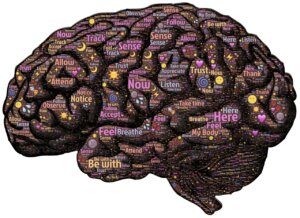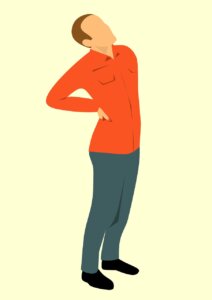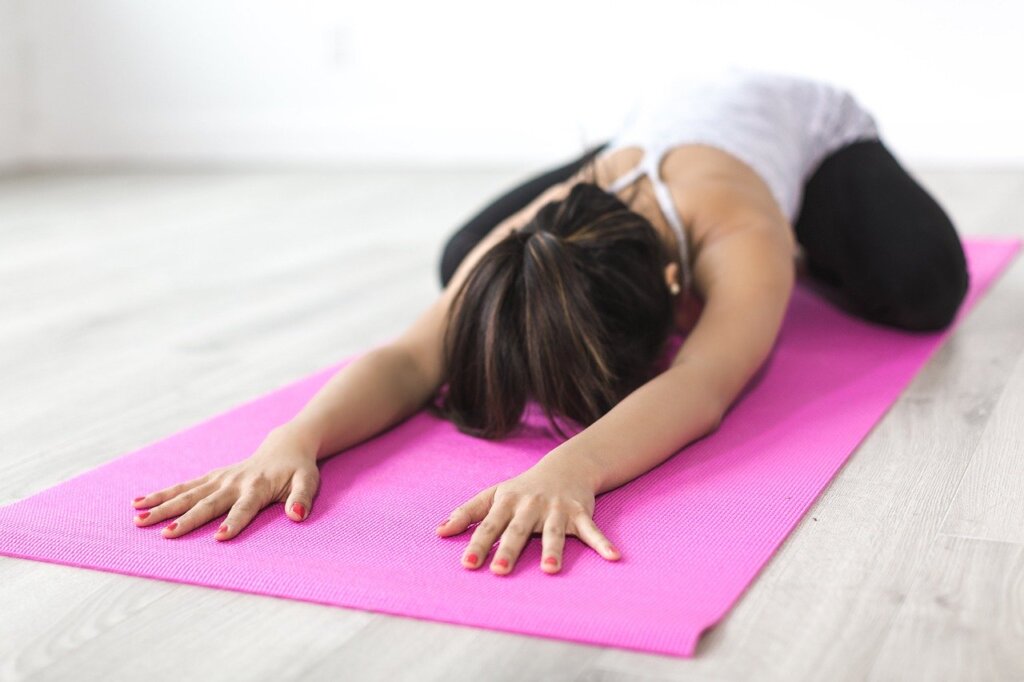Today’s article is a guest post written by Sara Popovic
First developed In ancient India, yoga stood the test of time and has now gained popularity around the world.
Derived from the Sanskrit word for union, yoga is a holistic practice that works on physical, mental, and spiritual well-being. Instead of focusing merely on physical exercise, it incorporates breathing and meditation techniques, to help you develop a mind-body connection and increase self-awareness.
And though a large portion of the system focuses on philosophy and spirituality, yoga is also proven to have an incredible impact on our physical and mental health. Encouraging us to be our own healers, it is incredibly empowering and is often life-changing for its practitioners.
Yoga And The Mind
Yoga is a unique type of exercise. Many would argue that it isn’t an exercise at all – and that is the result of it primarily focusing on our spirituality and the mind. And though greater consciousness is the principal goal of yoga, I will focus more on the more “tangible” effects on the mind. These are backed with science and include relief from anxiety, depression, and stress.
- Yoga helps to manage depression

Millions of people are affected with major depression in the world, right now.
Therapy and medication are a generally accepted way of treating the illness. However, people search for alternatives and methods they can do on their own to combat the overarching feelings of sorrow, unworthiness, and lethargy.
Yoga is one of the best complementary therapies for depression.
Many individuals, including myself, have experienced the energizing and healing benefits of yoga for depression. But beyond the personal experiences, a large body of research has confirmed the theory. Yoga has shown to get a positive response in those who are accompanying it with standard therapy, as well as those who don’t react well to antidepressants.
Medical experts believe yoga alleviates symptoms of depression because it, like every exercise, elevates serotonin levels the body. The spiritual aspect of yoga, including meditation and breathing exercises, which invokes a sense of calmness and acceptance is also attributed to the anti-depressive benefits of the practice.
- Yoga Reduces Stress

Yoga focuses on relaxing the mind, and by incorporating slow, conscious movements and breathing techniques, it can lower your irritability and teach you how to calm yourself down when distressed.
In fact, The Harvard Mental Health letter writes about the impact of yoga on stress-response and concludes yoga is an efficient method to regulate stress, especially when used along with meditation. It reduces the levels of “the stress hormone” cortisol and modulates our stress response, especially in those for whom this response is exaggerated.
- Anxiety Relief

As a self-soothing practice and by lowering our response to stress, yoga can help reduce anxiety. There is quite a bit of study of different yoga styles as well as different patients, all showing that yoga relieves anxiety with consistent practice.
Though there are many speculations about what exactly causes this effect, aside from the previously-mentioned hormone regulation, some suggest it could be because it elevates the GABA levels in the brain, which produces a calming effect. Yoga can also help with its focus on the present moment and on finding a sense of calm and love within oneself.
Yoga And The Body
Besides for healing our minds, yoga has many benefits for our physical health. Since it’s an all-body practice, it has an impact on the majority of the functions and systems in our bodies. However, I will focus on three of them, which have the most backing in scientific research and are most prominent.
- Increased Flexibility And Strength

Yoga poses and sequences are designed to simultaneously increase your strength and flexibility. As such, it can boost your physical performance but also reduces the risk of injury by effectively targeting the common strength/flexibility imbalances.
The exact effect depends on the style of yoga. A more vigorous style, like Ashtanga yoga, shows greater increases in strength, particularly in the core and arms. With gentle styles, such as Hatha and Restorative yoga, you might experience faster increases in your flexibility and range of motion.
- Back Pain Relief

One of the most “raved about” benefits of yoga is its ability to combat back pain. It’s no wonder, as it’s estimated that around 80% of people suffer from the issue sooner or later in their lives.
Yoga is proven to help with back pain, especially chronic low-back pain. The previously mentioned balancing of strength and flexibility, particularly in the abdominal and back muscles is considered to be the major cause. As our core is stronger, our spine realigns and it is much easier to maintain a healthy posture. The increased flexibility in the hamstrings that yoga delivers also helps to release tension from the lower back.

- Improved Breathing
Yoga places a large importance on breathing, just as much as on physical exercises. The movement follows the rhythm of the breath. As you become aware of your breath during practice, it gradually becomes deeper and slower.
Pranayama, or yogic breathing exercise, is also included in most yoga classes.
Several large studies have shown significant increases in vital capacity after a period of doing Pranayama exercises. Vital capacity is a measurement for the largest volume of air that can be expelled from the lungs after a maximum inhalation. It is essential for healthy lung function and when elevated, it can help to relieve symptoms of asthma and lung disease.
Overall Health And Quality Of Life 
Understanding specific benefits can help us motivate ourselves to get on the mat. You are able to detect issues you have and gear your yoga practice towards combating them.
However, yoga is not a targeted treatment, the sole name of the practice translates to “unity”. It works your entire body as well as your mind, in order to obtain a mind-body connection and build greater awareness of yourself and the world.
As such, it started being increasingly used as accompanying therapy for improved quality of life in an array of individuals and different conditions.
As the term ‘quality of life’ can sound too general, it may be helpful to mention a couple of examples.
A popular study assigned 135 seniors to do six months of yoga, which has shown a significant increase in their mobility, mood, and reduction in fatigue. Some studies looked at how yoga can impact those struggling with cancer, and were intrigued by the results – all patients experienced decreased symptoms of chemotherapy, less pain and fatigue – while also reporting a higher sense of acceptance to their situation. Their sleep quality and social function improved, and they didn’t feel as much anxiety and depression.
It is impossible to name all studies that covered different effects of yoga. But they showed this practice can not only provide relaxation and stress reduction for those struggling with mental illness but can also boost recovery from addiction, promote a healthy respiratory and cardiovascular function, and increase overall well-being.
While most of these aliments have solutions from modern medicine, a purely scientific approach has been shown less effective in healing emotional and intellectual struggles. As a holistic practice, yoga heals your whole body, builds your awareness, and lowers your stress response. It allows you to live consciously, and you consequently start making better decisions, changing bad habits and behaviors and begin to live a happier, healthier and more fulfilling life
Sara Popovic is a freelance writer, who was first introduced to yoga as a teen. Except for yoga, she also enjoys writing about fitness, beauty and well-being. When she’s not writing, she’s working out, reading and spending time in nature with their dog.
Contact Sara at saras.content@gmail.com and https://www.fiverr.com/sarascontent


Wow, I didn’t know it started in India. I also wasn’t aware that it could help with depression. Nice article, thanks for posting!
Hi. The https://soulbuildingfitness.com site is great: it has a lot of valuable information and is easy to find.
I learned a lot from here, so I want to ask about a recommended
book as the best natural remedies: https://bit.ly/3cJNuy9
What do you think, it’s worth buying, is it too cheap? Thanks and hugs!
Dear Arlena,
We are very happy that you find our site useful. Thank you for the kind words! As for your question about the book- We definitely advocate for using a wide variety of herbal supplements and other natural ingredients. In other words a good combination of eastern and western medicine principles. Furthermore, if one could find enough benefit from a natural (herbal) supplement to where they no longer have to rely on a pharmaceutical, then that is great! This does happen, and while we are not 100% familiar with Dr. Nicole Apelian, she seems to be very knowledgeable.
With love,
SBF